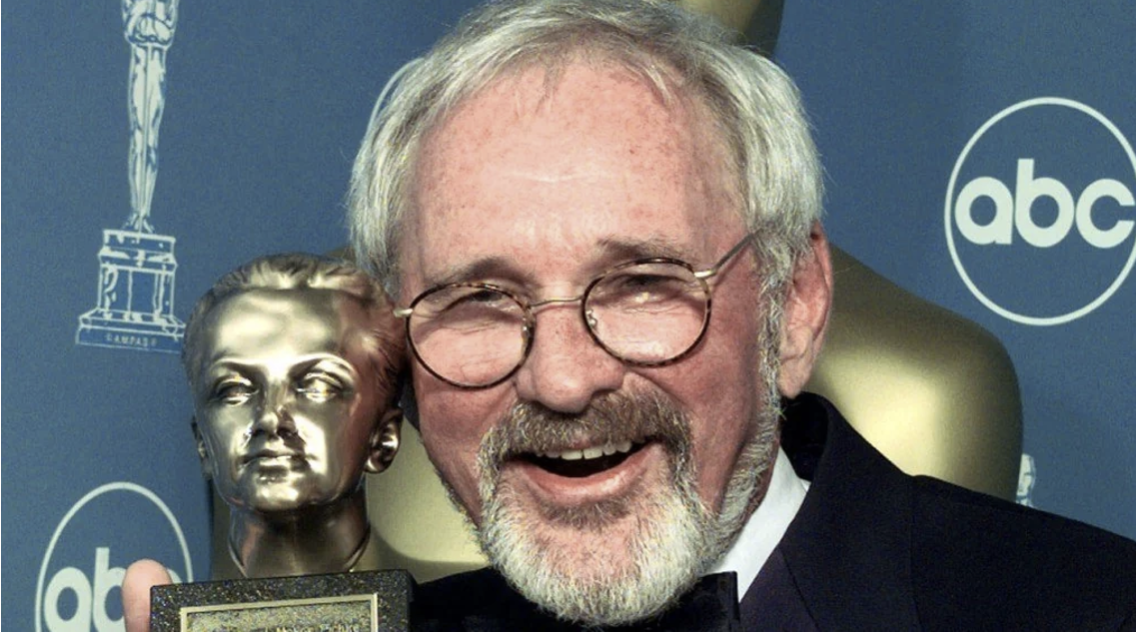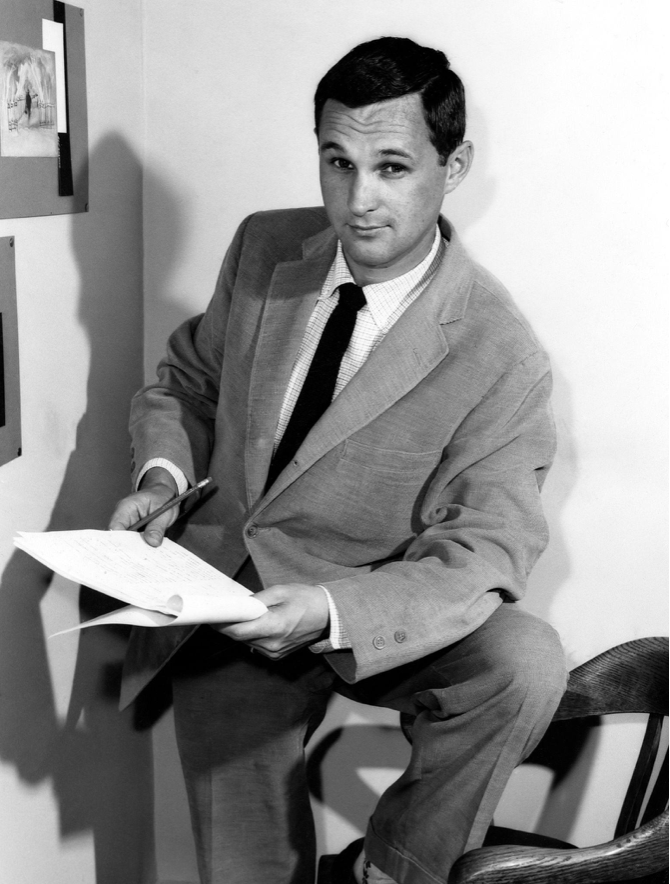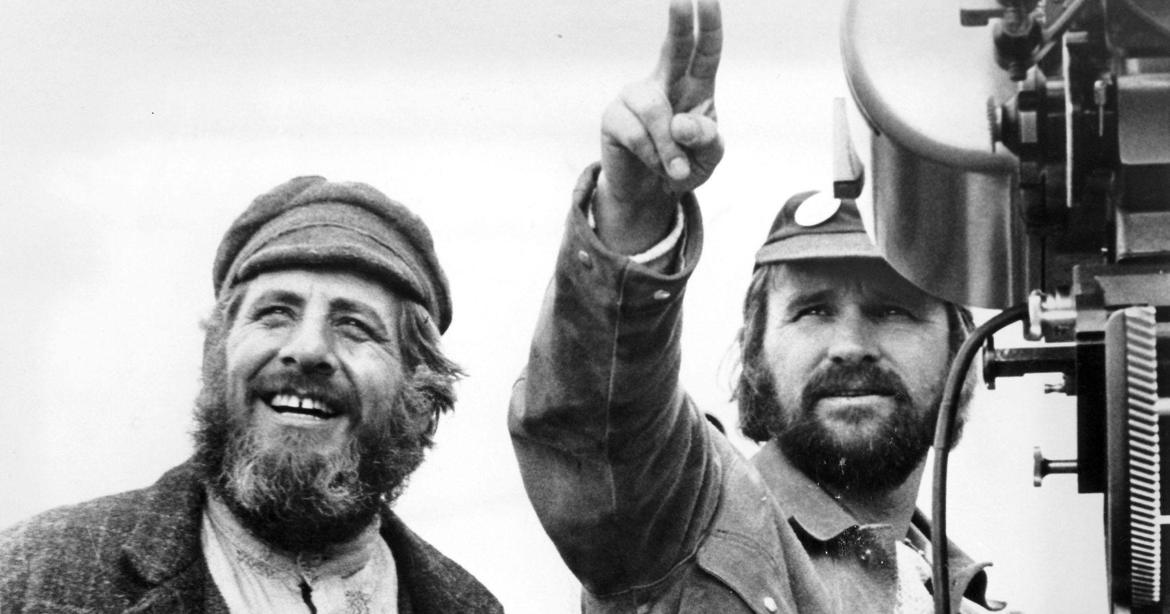On Saturday Jan 20, the legendary Norman Jewison passed on from this world at age 97. Lauded by many as one of the most important Canadian filmmakers in cinema history, Jewison left a rich legacy in both his immense body of work (24 theatrical features plus countless hours of television) as well as his endless advocacy for future generations of Canadian filmmakers, most notably by his founding of the Canadian Film Centre in 1988.
Despite his surname, Jewison was in fact born to Anglo Protestant parents in 1926. It didn’t take him long to fall in love with storytelling as at a young age, he would reenact movies he saw at Toronto’s Beach Theatre for the local neighbourhood kids, charging 2 cents a show. This one-man act would serve him well in later years pitching to Hollywood executives.
After a brief stint in the Royal Canadian Navy near the end of WWII, Jewison pursued a Liberal Arts degree at the University of Toronto while also finding time to write, direct, and act in several campus musical revues. Upon graduation, he travelled to London to briefly work at the CBC before promptly hopping back across the pond to join the trainee program for Canada’s first television network, the CBC.
Starting as a floor director from the network’s launch in September 1952, Jewison was soon promoted to director, helming numerous variety programs including Wayne & Shuster. But before long, he hit the limits of what he felt he could achieve under Canada’s cultural inferiority complex and an offer from CBS proved too much to resist, prompting him to uproot his family to New York in 1958. It was there (and sometimes LA) where he would direct episodes for Your Hit Parade, The Andy Williams Show, and The Danny Kaye Show. Perhaps his greatest achievement on the small screen was the Emmy-winning Legends in Concert Special featuring Judy Garland, Frank Sinatra, and Dean Martin which is still highly regarded today.
A young Norman in his TV-directing days
With all the television success under his belt, it seemed inevitable that Hollywood would come calling in the form of a 7-film contract with Universal Pictures. However, only 4 comedy films featuring the likes of Doris Day and Tony Curtis resulted from this arrangement and it was Jewison’s taking over the direction of the Steve McQueen vehicle The Cincinnati Kid from a fired Sam Peckinpah in 1965 that scored him his first critical and commercial success.
Not satisfied with being a director-for-hire, Jewison began generating his own projects as a creative producer beginning with the 1966 cold war comedy The Russians Are Coming, the Russians Are Coming. He would function as a creative producer for all his subsequent directorial output with the notable exception of his 167 Best Picture winner, In the Heat of the Night.
Jewison would go on to have a distinguished and eclectic career, directing true life dramas (The Hurricane), Musicals (Fiddler on the Roof, Jesus Christ Superstar), romantic comedies (Moonstruck) and even a sci -fi thriller (Rollerball). He also had a special interest in taking on a range of social issues in his work including racial prejudice (A Soldier’s Story), labour unions (F.I.S.T), and anti-semitism (The Statement, his final film before retiring).
Norman directs a scene for Fiddler on the Roof, flanked by star Topol
He was notorious for his unbridled enthusiasm for the filmmaking process and his masterful handling of the massive egos around him. He was also a steady nurturer of talent, encouraging his longtime film editor Hal Ashby to move to the directing chair by producing his directorial debut The Landlord in 1970. Ashby would go on to have a very distinguished career of his own leaving us such classics as The Last Detail and Being There.
The Toronto boy never forgot where he came from as he eventually returned his family to Canada in 1978, settling in a farm in Caledon Hills northwest of Toronto. He also filmed or set several projects in his home country including Agnes of God and The Hurricane. But his greatest gift to his home country was his founding of the Canadian Film Centre, a charity that operates as a film school and media lab, offering training and advancement opportunities for the next generation of Canadian filmmakers. Alumni include the likes of Sarah Polley, Vincenzo Natali, and Clement Virgo.
For as many Oscars as his films won, Jewison never received a competitive Oscar himself. But the Academy did see fit to honour him in 1999 with the Irving G. Thalberg Memorial Award for lifetime achievement. His acceptance speech reflected his endless commitment to nurturing emerging talent as he left the audience with these words: “Never mind the gross, the top 10, bottom 10, what’s the rating, what’s the demographic. Just tell stories that move us to laughter and tears, and perhaps reveal a little truth about ourselves”. Words to roll film by.



